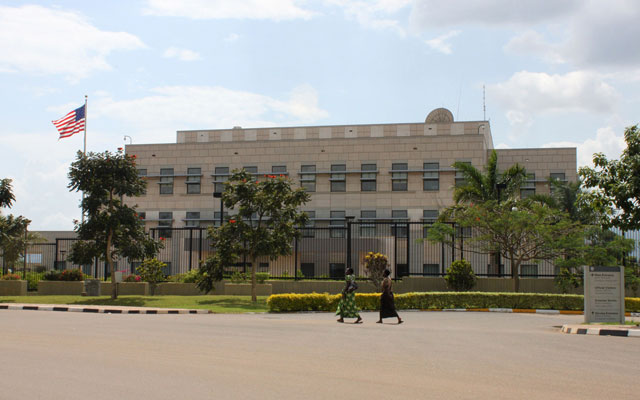
People walk in front of the U.S embassy in Kigali, Rwanda (STEPHANIE AGLIETTI/AFP/Getty Images/Newscom)
Four U.S. embassies in sub-Saharan Africa—in Burundi, Madagascar, Mauritius, and Rwanda—remain closed this week in addition to the embassy closures in the Middle East and North Africa.
Concerns over terrorist plots in east Africa are not new to the region: 15 years ago today—August 7, 1998—the U.S. embassies in Kenya and Tanzania were bombed by al-Qaeda. Osama bin Laden was the mastermind behind the attacks that killed 224 people and injured over 5,000.
Regrettably, 15 years later, al-Qaeda remains active in much of the region. Just last week, the Turkish embassy annex in Somalia was bombed by al-Shabaab, an al-Qaeda affiliate in the Horn of Africa. Some speculate that Burundi could be a terrorist target because it has been a key supplier of troops fighting al-Shabaab in Somalia. Uganda experienced similar retaliation for its troop deployment to Somalia to fight al-Shabaab when in July 2010 al-Shabaab detonated bombs in the country’s capital, attacking crowds watching the World Cup. Over 70 people were killed.
The U.S. and our allies continue to be targeted by al-Qaeda and its affiliates. Today’s anniversary of the bombings in east Africa and the news of the embassy closures are a stark reminder that the global al-Qaeda network has not been defeated and continues to disrupt U.S. government operations and threaten American lives.




























